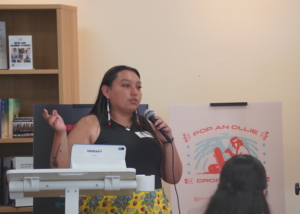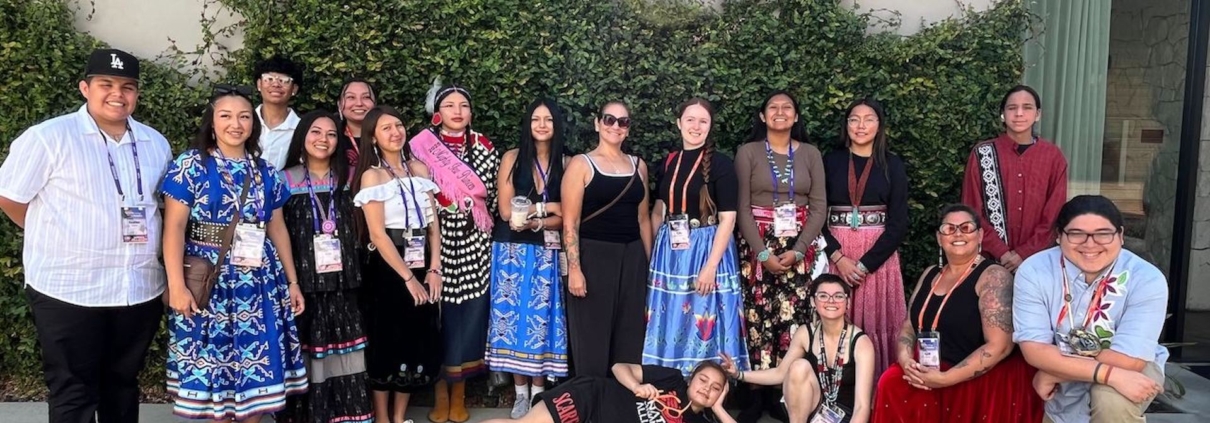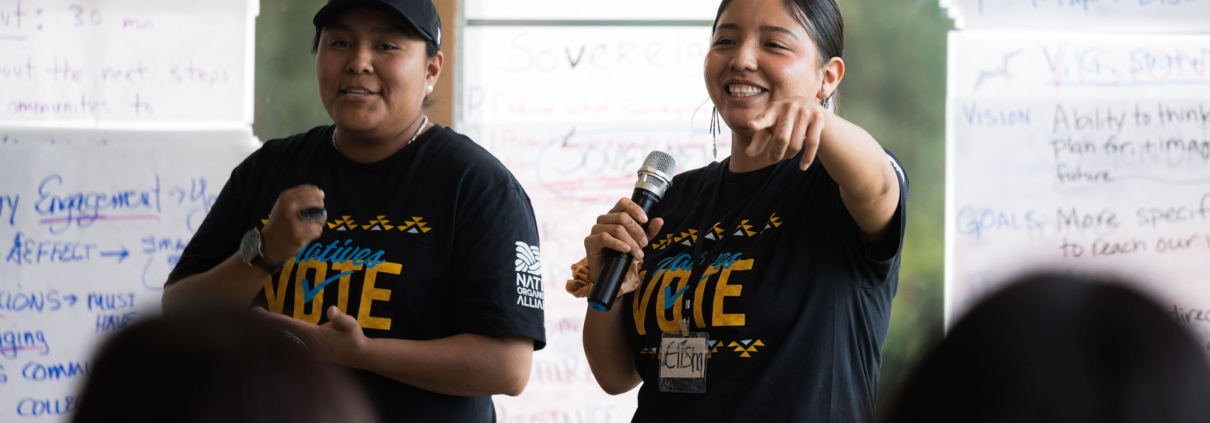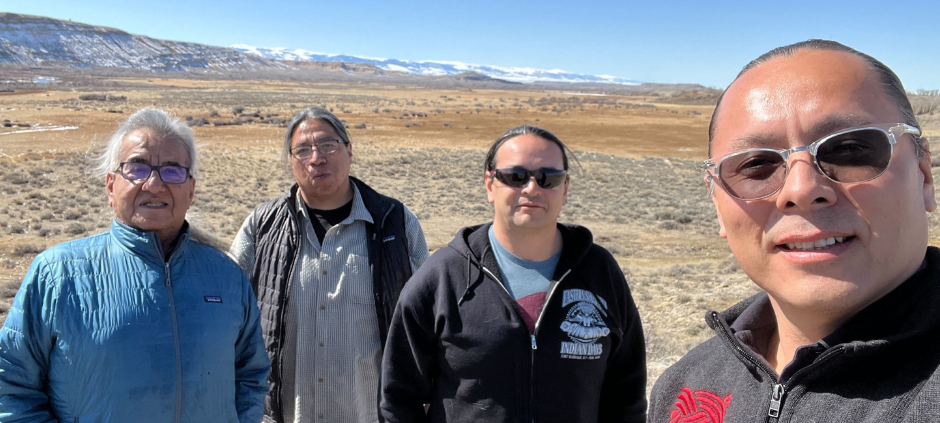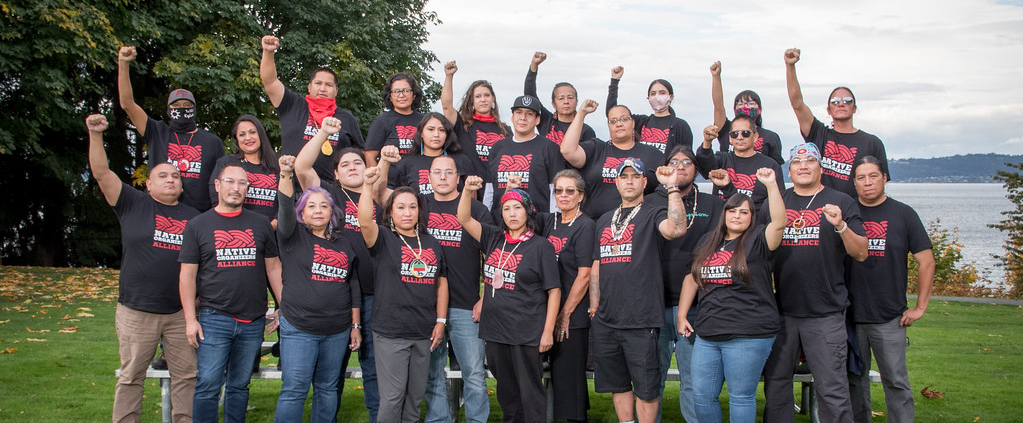Our Commitment to the Next Generation
Native youth are a vital part of grassroots organizing. That’s why this summer, we participated in different opportunities that gave some from the younger generation the opportunity to learn about the tools necessary to engage and organize in their communities.
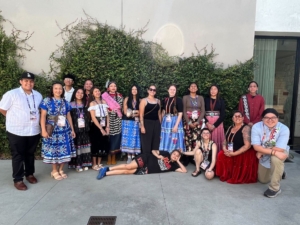
National UNITY Conference in San Diego
We brought 20 Native youth from 9 Tribal Nations and villages across 9 states to this year’s National UNITY Conference in San Diego! This cohort had a wonderful time being around other Native youth leaders while also participating in the workshops (including the one we facilitated!)
Here are a few testimonials from those in attendance:
Maia (Arizona) YOUTH PARTICIPANT
“My favorite part of attending UNITY was seeing how small and powerful Indian Country is. I found new relatives in each workshop and saw that we all share similar goals for our communities. One thing I learned about myself at UNITY was discovering a deeper perspective on advocacy — balancing when to step forward and how to do it well. Since coming home, my favorite tools to use have been creating more spaces for youth to speak up and be heard.”
Neezhoni (Alaska) YOUTH PARTICIPANT
“The time I spent with NOA was nothing short of amazing. To have people who want to hear and listen to your voice and what you have to say is so crucial as an Alaska Native youth. Being with other Native youth from all over was such a feeling of accomplishment. I’ve always wanted to see Native youth gathered to learn, to listen, and to speak without fear of being unheard. Learning about other cultures was amazing, and sharing mine was too.
After my time at UNITY with NOA, I went back to my little village in Alaska and shared what I had learned. I learned to be brave, to remember that sometimes you might be the only person in the room representing your people, to be more understanding, to remember that there will always be people out there rooting for you. Connecting with other people as a Native person is fundamental in the way we move forward, and it’s important to share your knowledge with others. Thank you to NOA for rooting for me!!!”
Star (Oklahoma) NOA STAFF
“NOA took a group of 16 youth from our key states, ages 14–21, to San Diego for UNITY 2025 “Voices of Hope.” For the diverse group we hosted, some had only ever experienced Indigenous peoples from their own community or had limited access to other Native peoples in general. All of them were amazed by the opportunity to connect with Native youth from all over, as well as to step up to the table and truly be part of discussions about Indian Country.
NOA also facilitated a session of our own called “Buffalos in the Storm,” where we discussed effective/ineffective and violent/nonviolent tactics and forms of protest in the current political climate, and how best we as a community navigate the political storm ahead.”
Wolf (Michigan) NOA STAFF
“I learned a lot at UNITY, but my favorite part had to be the Northern Tribes Games breakout room. It was so cool, and I had a lot of fun there. I also learned that when I’m invested, I can really put myself out there and grow a lot. I also learned how I can start my own youth council so I can use what I learned to help others or build something new in my community.”
Protect the Sacred Youth Summit 2025
We were invited by our friends at Protect the Sacred to lead a training during their annual Youth Summit. NOA is honored to lead workshops with young organizers and establish that initial introduction to Indigenous grassroots strategies.
This year we gathered Shiprock, New Mexico, at the brand-new Shiprock E-Ship Hub. The summit was led by Change Labs.
